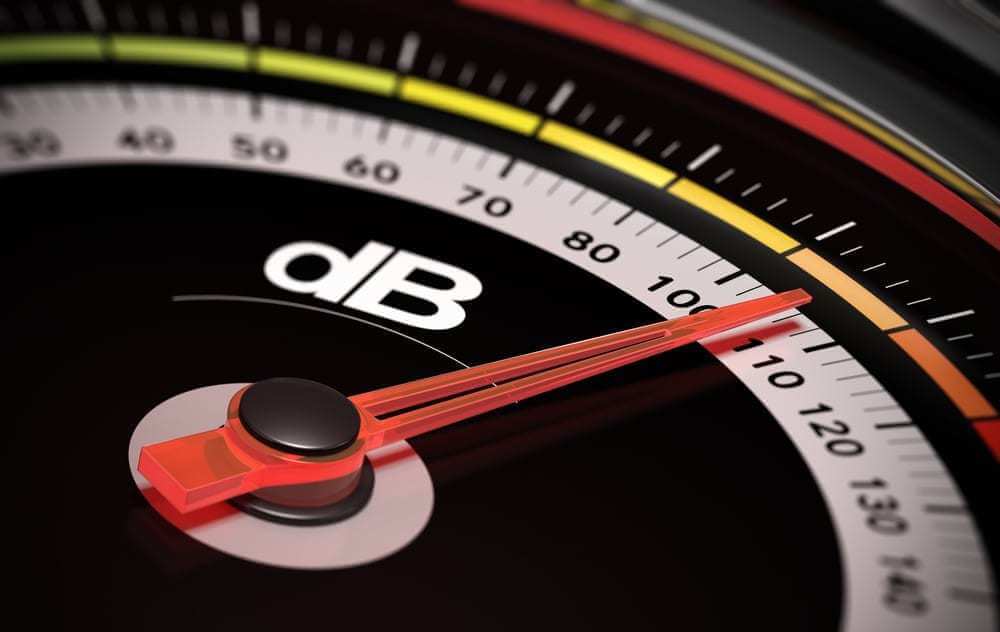What Is a Decibel?
What is a decibel? A decibel (dB) is a way to measure levels of sound. Since sound travels in waves, it’s impossible to measure it in a linear fashion like you would a solid object. Some linear forms of measurement – inches, for example – represent a specific number that quantifies an object’s size. Decibels, on the other hand, actually represent a logarithmic scale, which increases by powers of 10. Every time a sound steps up on the decibel scale, its sound pressure level (SPL) increases 10-fold. Therefore, a sound that is 10 dB higher than, say, a cough, is actually 10 times louder than the cough.
What Do Decibels Have to Do With Hearing Loss?
Put simply, the higher the decibel measurement, the louder the sound – and the more likely it is to cause noise-induced hearing loss (NIHL). It’s important to understand and be able to measure decibels to protect yourself from potentially harmful levels of sound. According to the National Institute on Deafness and Other Communication Disorders (NIDCD), anyone can suffer hearing loss due to exposure to everyday sounds. In fact, NIDCD estimates that approximately 15 percent of Americans between the ages of 20 and 69 have permanent hearing loss that may have been caused by everyday sound exposure.
How Do I Determine the Decibel Levels of Everyday Sounds?
Decibels, ratios, amplitude, frequency – there are a lot of confusing factors at play when it comes to measuring sound. However, it all comes down to the fact that it’s easy for loud sounds to damage your hearing. You can permanently damage your hearing with repeated exposure to noise louder than 85 dB – which, surprisingly, isn’t that loud. If you’re struggling to grasp the concept of decibels, check out the list below for some common sounds and their decibel measurements:
- Normal human conversation – like two coworkers chatting in an office: 60 dB
- Lawnmower operating at close range: 90 dB
- MP3 player at maximum volume: 105 dB
- Police or ambulance siren: 120 dB
- Firearms fired at close range: 150 dB
- Click here for the best apps to measure noise levels
How Can I Protect My Hearing from High-Decibel Sounds?
If you’re anticipating exposure to high-decibel sounds – maybe you’re attending a concert or you work in a field that requires you to operate loud equipment – you’ll want to take steps to protect your hearing. First, if you’re often engaged in fairly manageable sound situations like operating a lawnmower, earplugs could be an easy, cheap solution. However, earplugs may not work in situations with extremely high sound levels. For example, if you spend a lot of time using firearms – maybe you’re a recreational hunter or enjoy going to the shooting range – you’ll want to invest in some earmuffs, which you can find at most sporting goods stores. There are also a variety of tools and apps you can use to measure decibel levels when you’re on the go. If you need more specialized or custom-fit hearing protection, we can certainly help in that department.
Still asking yourself, “What is a decibel?” and “How can I protect my hearing from high-decibel sounds?” We’ve got answers. At Sound Relief Hearing Center, we’re committed to protecting your hearing – and increasing your quality of life if you’ve already suffered hearing loss.
Find a Sound Relief Hearing Center near you to get started. We have locations in Colorado and Arizona. With our unparalleled excellence in the hearing industry, our dedication to patient satisfaction, and our commitment to helping people control and conquer their hearing issues, you can count on Sound Relief Hearing Center for support and assistance. To learn more about us, please browse our website, visit our YouTube channel, or give us a call at 720-344-7600. You can also schedule an appointment online to meet with one of our audiologists. We look forward to hearing from you!
At Sound Relief Tinnitus & Hearing Center, we provide hope and help to those living with tinnitus and other hearing health issues. Our patients are at the center of everything we do, and we strive to guide them to overcome their challenges by delivering innovative and compassionate healthcare.
Dr. Julie Prutsman, owner of this family-owned practice, has expanded to 9 locations across Colorado and Arizona. In 2012, she founded Sound Relief in her hometown of Highlands Ranch, Colorado and continues to foster their mission through mentorship of the brightest minds in the field of Audiology.

